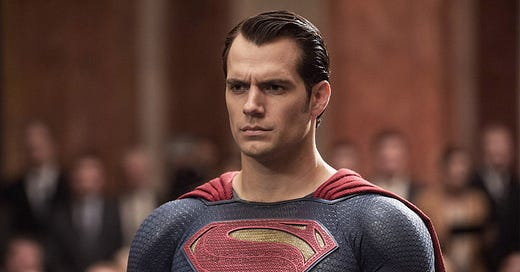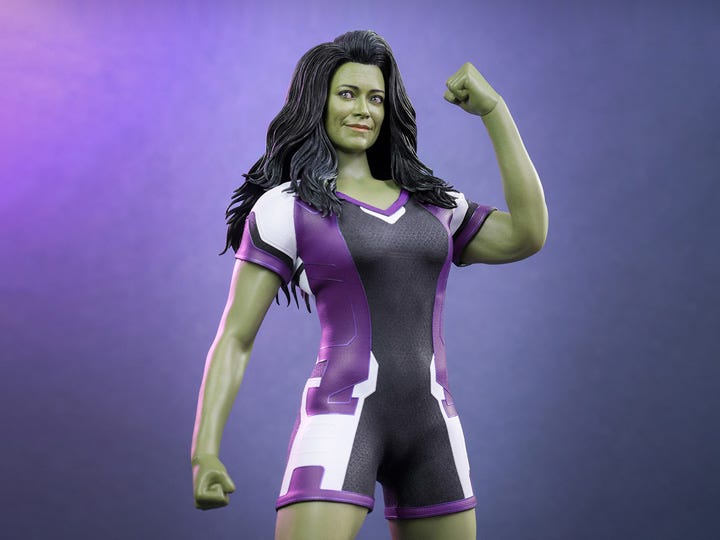This week we learned that both Henry Cavill (“Superman”) and Dwayne “The Rock” Johnson (“Black Adam”) will not be returning in the DC movie universe. Online blogger “Yellow Flash” opined that Gal Gadot won’t be doing another “Wonder Woman” movie.
This was surprising in many ways; indeed, probably stunning to anyone familiar with the whold Warner Bros. DC universe of movies. Ok, ok, most people didn’t think that “Justice League” was very good. I liked it, though the villain was beyond hokey. But I like Gadot, Cavill, and Momoa, and Ben Affleck does a passable Batman. Could do without Ezra Miller, even before his baggage.
But “Justice League” wasn’t terrible, and it certainly opened the door for better written sequels.
Not now.
What makes these developments so amazing is that DC has both its heroes in the movies still alive and has its stars still under contract. Contrast that with Marvel, which has killed off its two biggest heroes—-Iron Man and Captain America—-and neither Robert Downey, Jr. nor Christ Evans want to do another superhero pic. Even “Thor’s” Chris Hemsworth does not want to reprise the goofy, comedian-version of his hero. Everything Marvel cannot do, Warner Bros. can . . . but now deliberately won’t.
Apparently, Warners is going to reboot all of these franchises with lesser known, younger actors and actresses. Good luck.
I asked a film producer friend what is going on? It’s not like these studios can afford to blow money. Right now Disney is suffering from an almost unprecedented streak of losers. “Lightyear,” in its woke form, turned off audiences as did the animated “Strange World.” Then came the woke, completely unwanted remake of “Willow.” These all lost significant sums. Currently, Disney is sitting on one of the biggest potential bombs of all time, “Avatar 2: The Way of Water,” even though it opened to over $500 million worldwide. Traditional film revenue patterns say that the next weekend will do about half that amount, with each successive weekend falling by half again. So within the month, “Avatar 2” will not break $1 billion.
For most film producers, this kind of performance would send them on trips to Tahiti in their new yachts. But the problem with “The Way of Water” is that its cost and marketing is so high, the movie must recoup $2 billion. And that will be a challenge.
So, I asked my friend, how can these studios keep losing money? He repliled, “Well, the news companies do it.” This is true, but I’m not sure its the same. News companies are viewed as playthings, vanity projects of billionaires, virtue-signaling billboards. A company like Sony won’t put up with losses for long. Warner Bros. is a subsidiary of an entertainment conglomerate featuring HBO, the Food Network, TNT, CNN, and Discovery. It is sufficiently it can absorb some losses. But not too many.
Disney, on the other hand, owns money-losing ESPN, which is hemorrhaging subscribers like the Black Knight in “Monty Python and the Holy Grail,” and can only offset film losses with the parks for so long, especially when the parks are starting to feel a backlash to high prices.
Clearly CEOs are not running these companies. They are being strongly guided and influenced by woke HR and Marketing people who have control of the statistics and can win almost any internal argument with their numbers based on focus groups or demographics.
In addition to the social pressures these little spoogemuffins have to show their LBGTQTransoid/environmental whacko/support-the-Ukes colors, there is a sobering reality we must face about these people in all walks of life:
They have grown up without heroes.
These piddlepistols did not know the likes of George Patton, Dwight Eisenhower, Martin Luther King, Neil Armstrong, or Mother Theresa. Even their sports heroes were flawed shadows of the giants such as Willie Mays, Jim Braddock, Roger Staubach, Hank Aaron, of Wayne Gretzky.
To them, the very concept of a hero evokes goofball notions of imperialism, “white privilege,” and sexism. The notions of self-sacrifice, loyalty to a company or nation, even family and faith are distant and fading. Thus, to these rising powers within the studios, it literally is no big deal to lose a Cavill/Superman or Gadot/Wonder Woman.
Marvel, at least, under its previous vision, knew what the death of Iron Man and aging of Captain America would mean—-but the newer writers utterly failed to appreciate how to replace these characters or what they stood for.
Instead they opted for “THE MESSAGE” with series such as “She-Hulk” or movies such as “Black Widow.” In doing so, not only did they repel any and all who hate being hit over the head with “THE MESSSAGE,” but lost any chance they may have had to develop alternative powerful and appealing replacements for Cap and Tony. (I maintain that “Ant-Man,” “Dr. Strange,” and a non-chaddimpled “Thor” could have picked up the story, but Marvel chose seppaku.)
The Youts’ unfamiliarity with heroes is not surprising. First, heroism—-or standing out—-has been trampled, mangled, and shamed. How many schools have adopted the “participation trophies,” ended the practice of having valedictorians, or otherwise downplayed success? Since 1995, the United States has only been in one war, which arguably it either lost or had no conclusion. (Personally I believe the War on Terror was won. Both al-Qaeda and ISIS were defeated, but other long-term goals were not achieved, including bringing truly democratic structures to part of the Middle East).
At any rate, there were few heroes other than Pat Tillman—-who now we know died of friendly fire—-in these conflicts. Instead, those who were celebrated more often than not were those who were seriously maimed. I am in no way criticizing their sacrifice, only noting that it was akin to surviving a POW camp: courageous and admirable, but fairly unimportant in securing a victory. Some people were horrified when candidate Donald Trump said of POW John McCain, “I prefer those who didn’t get captured.” But the fact is he was stating a reality: prisoners rarely, if ever, make an important contribution to victory. They scarcely tie up any enemy soldiers as guards. Likewise, the wounded, as cold-eyed battlefield strategists know, claim more resources on their own side than on the enemy’s, requiring large teams of doctors and support personnel to keep each one functioning.
Put another way, we have a generation who once again sees those who fought in terms of victims, not achievers, conquerors, or victors. The PTSD story lines of most post-Iraq films likewise reinforces this point.
To sum up: da Youts have neither experience with victory, overcoming, or achievement and far more with victimhood; have virtually no modern heroes to pattern themselves after, and are taught that becoming such a person is in itself unfair, unjust, and harmful to society.
Given this view of heroes, it’s not at all surprising that the newest generation of both Marvel and DC film adaptations of comics are devoid of exceptional people. What won’t be surprising is when the absence of such heroes is met with massive shrugs in by viewers and consumers. Because the dirty little secret is . . .
Everybody needs a hero.
Larry Schweikart is the co-author with Mike Allen of the New York Times #1 bestseller, A Patriot’s History of the United States and is the author of Dragonslayers: Six Presidents and their War with the Swamp. He is the founder of the Wild World of History which currently has TWO Master Classes, one in U.S., one in World History since 1775, each taught in high-production video by Larry. See these and book offers here:
www.wildworldofhistory.com










Check out my US or World History courses. You might find them interesting.
Yep.